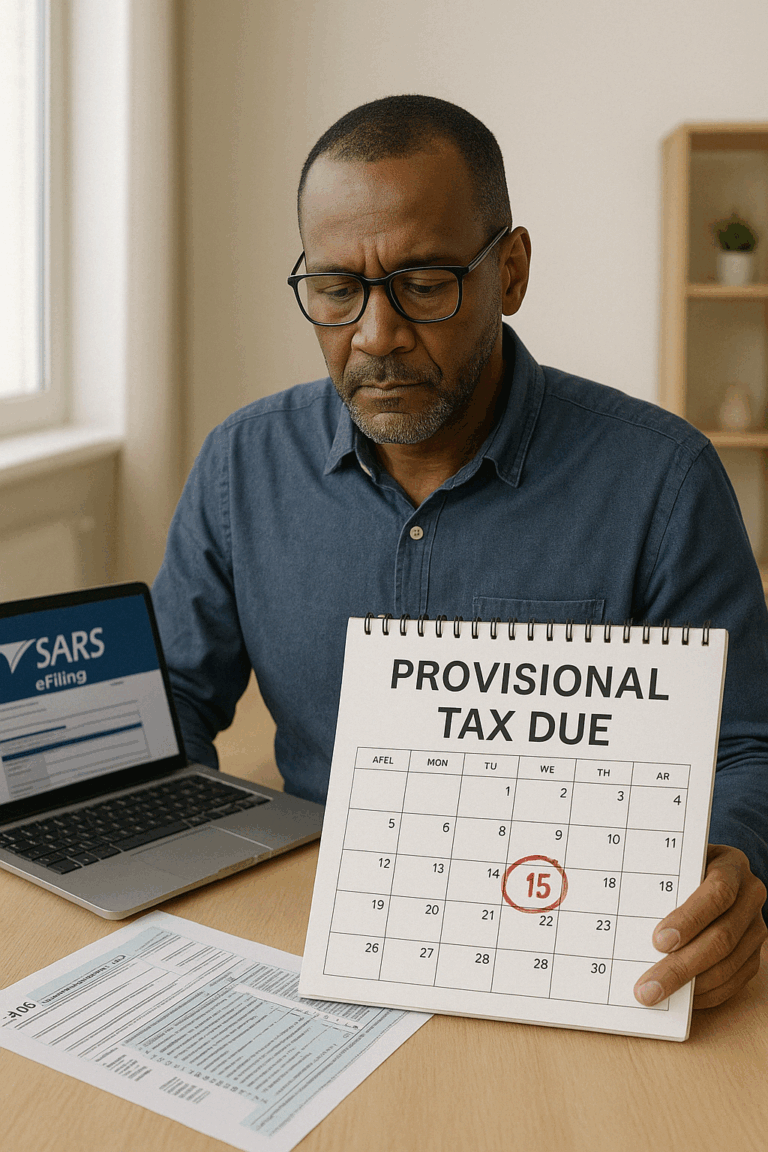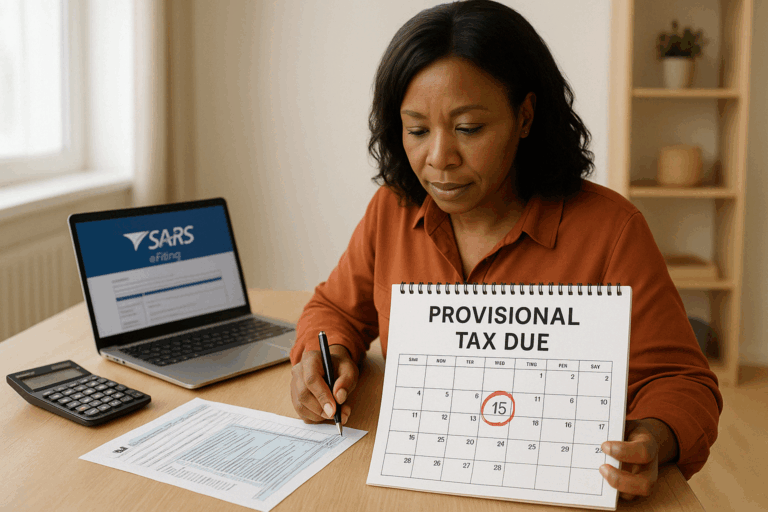Minimize Tax in Your Estate — Practical Strategies You Need to Know
Most South Africans focus on growing their wealth, but far fewer take the crucial steps needed to minimize tax in your estate. Without proper planning, taxes and administrative costs could erode up to 20% — or more — of what you leave behind for your loved ones.
If you want to Minimize Tax in Your Estate and protect the legacy you’ve worked so hard to build, proactive estate planning is essential. In this guide, we’ll walk you through what taxes apply when you pass away, and the most effective, legal strategies to minimize tax in your estate successfully.
Why It’s Critical to Minimize Tax in Your Estate
When you pass away, your estate triggers several taxes and fees — even before your heirs can inherit a cent. Without strategies to Minimize Tax in Your Estate, a large portion of your lifetime savings, property, and investments could go toward:
- Estate Duty
- Capital Gains Tax (CGT)
- Executor’s Fees
- Administrative Costs
The good news is that with careful planning, you can minimize tax in your estate and ensure that more of your assets go directly to your beneficiaries.

Taxes That Impact Your Estate
Understanding how taxes work at death is the first step to Minimize Tax in Your Estate:
1. Estate Duty
Estate Duty is a tax levied on the net value of your estate:
- 0% tax on the first R3.5 million (abatement)
- 20% tax on amounts between R3.5 million and R30 million
- 25% tax on estate values over R30 million
Without planning, high-value estates can lose millions to this tax alone.
2. Capital Gains Tax (CGT)
Upon death, SARS considers you to have disposed of your assets at their current market value, triggering CGT:
- The first R300,000 of capital gains are excluded at death.
- 40% of any additional gain is included in your taxable income.
3. Executor’s Fees
Executors can charge up to 3.5% (excluding VAT) of the gross asset value of your estate. On larger estates, executor fees alone could cost hundreds of thousands of rands.
✅ Real Example:
Sipho dies leaving:
- Property valued at R6 million (initially bought for R2 million)
- R2 million in investments
- A R1 million life insurance policy paid into his estate
Resulting in:
- CGT of ±R464,000
- Estate Duty of ±R1.1 million
- Executor’s Fees of ±R315,000
That’s over R1.8 million lost — illustrating why it’s vital to minimize tax in your estate.
7 Proven Strategies to Minimize Tax in Your Estate
If you want to Minimize Tax in Your Estate, here are powerful legal strategies you can start using today:
1. Use the R3.5 Million Abatement (and Rollover)
The R3.5 million abatement doubles to R7 million if the first-deceased spouse does not fully use theirs.
✅ Tip: Structure your will so that estate duty is only payable after the second spouse passes away, effectively minimizing tax in your estate.
2. Set Up a Family Trust
Moving appreciating assets into a family trust early can dramatically minimize tax in your estate:
- Trusts remove assets from your personal ownership.
- Future growth happens outside of your estate’s taxable value.
✅ Caution: Trusts are taxed at a flat rate of 45%, so you must manage income distributions smartly.
✅ Example:
Place a family beach house into a trust while its market value is low. Over decades, any appreciation benefits the trust — not your personal estate.
3. Keep Life Policies Outside the Estate
Many people inadvertently increase their estate’s value — and Estate Duty — by having life insurance proceeds paid into the estate.
✅ Tip:
Nominate individual beneficiaries or a trust as the direct recipient of life insurance payouts to Minimize Tax in Your Estate and avoid unnecessary executor fees.
4. Make Use of Annual Donations
Every year, you can donate up to R100,000 tax-free (or R200,000 as a couple). Over time, these donations minimize tax in your estate by reducing the overall size of your taxable estate.
✅ Bonus: Donations now mean your heirs benefit earlier while avoiding future tax burdens.
5. Create a Testamentary Trust for Minor Heirs
If you leave assets directly to minor children, their inheritance could be tied up for years in the Guardian’s Fund.
✅ Solution:
Establish a testamentary trust in your will. It ensures protection, control, and smarter tax management, helping you Minimize Tax in Your Estate while safeguarding your children’s future.
6. Plan for Estate Liquidity
Without cash reserves, your estate may be forced to sell property or investments at distressed prices just to pay taxes.
✅ Ensure liquidity through:
- Life insurance policies payable outside of the estate
- Cash investments or money market funds
- Trust loan account repayments
Proper liquidity planning ensures you Minimize Tax in Your Estate and avoid asset loss through forced sales.
7. Review Your Estate Plan Every 2–3 Years
Tax laws evolve. So do your assets and family dynamics.
✅ Regular reviews ensure your plan stays efficient and continues to Minimize Tax in Your Estate even as circumstances change.
Estate Planning IS Tax Planning
Too many families realize the need to Minimize Tax in Your Estate when it’s already too late.
By planning early, you not only protect your assets but also shield your family from unnecessary financial stress during a difficult time.
✅ Benefits of Estate Tax Planning:
- Preserve more wealth for your heirs
- Reduce administrative burdens
- Speed up estate settlement
- Protect minor beneficiaries
How Sparrows Chartered Accountants Can Help
At Sparrows Chartered Accountants, we specialize in helping South Africans minimize tax in your estate with smart, tailored strategies.
From setting up trusts to reviewing wills and structuring insurance policies, we work to ensure that what you’ve built benefits your family — not the taxman.
✅ Full estate tax analysis
✅ Customized trust and donation planning
✅ Liquidity structuring advice
✅ Ongoing estate plan reviews
Final Thoughts
If you truly want to protect your legacy, you must Minimize Tax in Your Estate with careful, strategic planning today — not tomorrow.
Disclaimer: This article is intended for general informational purposes only and reflects the legislation and SARS practices in effect at the time of publishing. Tax laws are subject to change, and individual circumstances vary. Always consult a registered tax practitioner or financial advisor for advice tailored to your situation.







